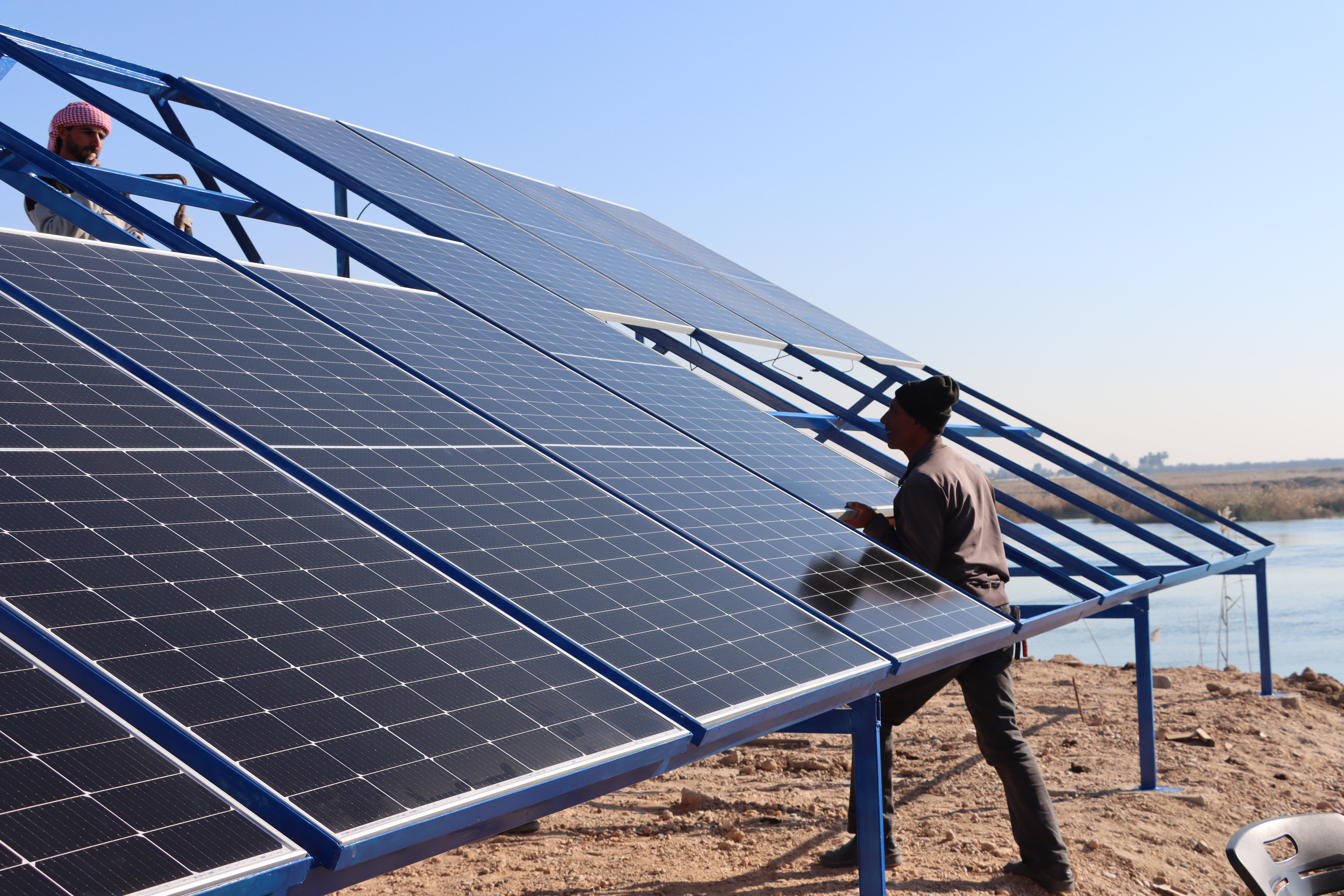Solar Solution for Clean Water in Deir ez-Zour
January 16, 2024

Samar washing dishes in her kitchen surrounded by the hum of clean water
In Dablan village east of Deir ez-Zour, where electricity cuts hinder access to clean water, Samar, a 50-year-old widow and a mother of six, faced significant challenges due to the scarcity of clean water.
“Every day, at the crack of dawn, after sending my children off to school, I have to embark on several journeys, walking approximately five kilometres to the river to fetch water for the family,” explains Samar. “This routine was physically exhausting for me, but I do not have much of a choice. I cannot afford to buy trucked water other people in the village sometimes us,” she added.
Moreover, the manual filtering of the water was a cumbersome task, leading to the spread of diseases in the village.
“My day was very tiring, carrying heavy water containers back and forth, and I was always afraid for my children’s health because of the water quality.” Said Samar.

UNDP workers installing solar system for a water pumping station in Dablan, Deir ez-Zour
The United Nations Development Programme (UNDP), with the support of the Funding Window, implemented a transformative project harnessing the power of solar energy.
Installing a solar-powered system for a water pumping station has extended its operational hours, ensuring a consistent water supply. Now, more than 52,000 people, including Samar and her children, enjoy access to clean drinking water, leading to improved health and a decreased risk of waterborne diseases.
“Life has changed for the better. Clean water is no longer a distant dream; it is right here in my house. Now I have more time for my children and other important tasks,” explained Samar with a smile on her face.
The challenges of water transportation have markedly diminished, enabling the population to concentrate on education and income-generating activities. This initiative not only safeguards women and children but also empowers them by alleviating their burdens and fostering gender equality. Furthermore, the solar-powered pumping station reduces carbon emissions, helping mitigate the community's carbon footprint and contributing to the fight against climate change.
“This project brought not just water but hope and ease to my life and to everyone in our village," she concluded.

 Locations
Locations



